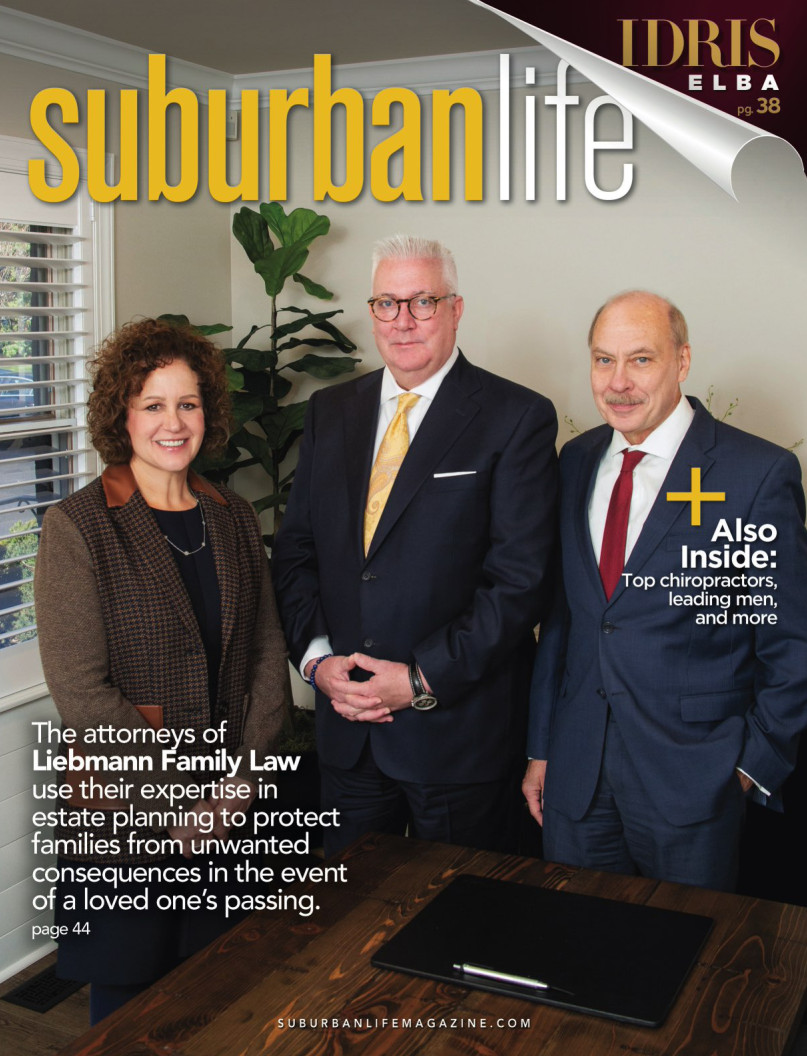
Matters of Life and Death
The attorneys of Liebmann Family Law use their expertise in estate planning to protect families from unwanted consequences in the event of a loved one’s passing.
It’s not uncommon for people to approach estate planning with some degree of reluctance, in part because it forces them to confront their own mortality. For some, even thinking about the process of setting up a will and other vital estate planning documents may induce enough stress to avoid taking proper precautions for months or even years.
But they do so at their own peril, according to David J. Sowerbutts of Liebmann Family Law in Bucks County. After all, going without such attorney-prepared documents can result in unwanted consequences for the loved ones left behind.
“People work hard their entire lives to accumulate wealth and assets, and when someone dies without a will, they have given up the ability to direct who is going to receive the benefit of these assets and the wealth that they worked so hard for,” Sowerbutts explains. “Then it falls to the blind directives of the law. Some law in some book of statutes is going to determine who is going to acquire your assets, rather than being governed by your wants and desires.”
Sowerbutts believes everyone needs a will in order to make life—and, more specifically, the aftermath of a life coming to an end—much less complicated in the event of something unexpected. While sitting down with an attorney to prepare a will may make some people a bit uncomfortable, Sowerbutts has seen firsthand how upside down life can get when someone dies without making their intentions clear.
“No one knows what the future holds,” he adds. “Not having a will can cause confusion, resentment, and costly court fights. As a result, people might be appointed to handle your estate that you would never choose. Beneficiaries that you would never have chosen may end up getting a part of the estate. It is also very important to pick the guardians of your children and who will be in charge of their money if you pass away.”
By using his professional knowledge honed from 40 years in practice, Sowerbutts strives to make the estate planning process as straightforward as possible—simple, clean, and easy to understand. He’s happy to meet clients over a web-conferencing platform, the phone, or in person so he can collect the information needed to protect clients and their families. Even after the documents are prepared, reviewed, and signed to make them official, Sowerbutts remains available for any subsequent questions or, if needed, revisions.
Another important estate planning document is a power of attorney, which is often drawn up at the same time as a will. If someone becomes sick, ill, or injured and cannot manage their own affairs, a power of attorney empowers a trusted agent to manage a person’s affairs on their behalf.
“This is done so someone you trust can manage your affairs, make decisions, and keep your life in order until you recover,” explains Sowerbutts. “The power of attorney requires third parties such as banks, financial institutions, and medical providers to follow the directives from your selected agent who in turn knows your wishes and directives.”
Some might believe that a power of attorney is unnecessary because their significant other “will take care of it” if they become incapacitated. Sowerbutts reminds us that just because a person is married, a spouse does not automatically have the right to make medical, financial, legal, and other life decisions for their other half.
Sowerbutts also works with parents or guardians who care for family members with special needs such as physical, emotional, or cognitive disabilities. As part of his guidance, he underscores the importance of establishing a special needs trust for such beneficiaries. He describes a special needs trust as a legal entity based on a fiduciary relationship between the settlor (the person who sets up the trust and seeds it with money or assets to fund the trust), and a beneficiary (the one who receives the money or assets in the trust).
When setting up the trust, he says it’s imperative to follow a precise set of rules in regard to how the money is to be spent on the beneficiary. The money in the trust can be used for a broad variety of needs such as training, travel, education, entertainment, and medical needs not covered by assistance programs, among other quality-of-life expenditures other than food and shelter.
While Sowerbutts understands why some families choose to take a wait-and-see approach, he says putting a plan in place sooner rather than later can help deal with the unexpected.
“A special needs trust enhances and improves the quality of life for a dependent person, while preserving the vital needs-based government assistance programs,” he says. “Creating the trust can be the difference between keeping public benefits and having money to greatly enhance a dependent’s quality of life or waiting until all of the money is depleted before starting or resuming public benefits.”
Regardless of a family’s individual circumstances, Sowerbutts advises his clients to take action before action becomes necessary. He recommends that his clients obtain a will, a general durable power of attorney, a healthcare power of attorney, and a living will.
“I thoroughly enjoy helping people and working with people to achieve their legal goals,” he says. “The law isn’t perfect, and there is not always an easy solution, but I always try hard to help everybody I can. No one knows what the future will hold, so I want everyone to be fully prepared for their protection during their lives and for the protection of their loved ones after their death.”
About Liebmann Family Law
Liebmann Family Law has been building on its considerable experience and knowledge in family law and related legal matters for more than a decade. The firm’s legal team—founder Jeffrey A. Liebmann, Mindy J. Snyder, and David J. Sowerbutts—has extensive courtroom and litigation experience, as well as a background in complex property division issues, custody disputes, and support and alimony issues. The firm has represented a broad cross-section of the community, in all aspects of their family law issues, in successful negotiations, settlements, and, when necessary, inside the courtroom.
Liebmann Family Law has been building on its considerable experience and knowledge in family law and related legal matters for more than a decade. The firm’s legal team—founder Jeffrey A. Liebmann, Mindy J. Snyder, and David J. Sowerbutts—has extensive courtroom and litigation experience, as well as a background in complex property division issues, custody disputes, and support and alimony issues. The firm has represented a broad cross-section of the community, in all aspects of their family law issues, in successful negotiations, settlements, and, when necessary, inside the courtroom.
Liebmann Family Law
The Atrium
4 Terry Drive, Suite 4
Newtown, PA 18940
(215) 860-8200
liebmannfamilylaw.com
Photo by Alison Dunlap
Published (and copyrighted) in Suburban Life, November 2022.



